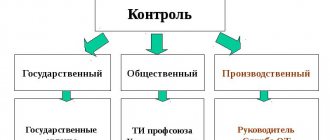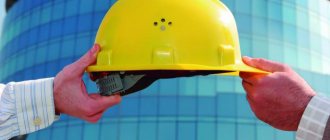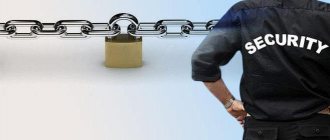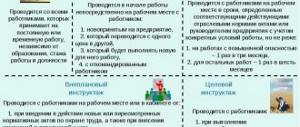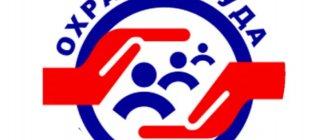Concept of control and supervision
What is supervision and control in the field of labor protection?
The distinction between the concepts of “control” and “supervision” and their functions still remains one of the most controversial issues.
This is due to the presence of different approaches to determining their essence and insufficient regulatory regulation of aspects of the relationship between the relevant competence to conduct control and supervisory activities.
When developing new or amending existing legal acts on issues of supervision and control, the legislator practically does not take into account scientific developments on these aspects.
Therefore, sometimes, when determining certain powers of a particular body, identical functions are designated either as supervisory or control.
If we talk about the distinctive features, we should remember that supervision has an external focus in relation to supervised objects, and control can be carried out “inside” the system (departmental or intradepartmental control).
The essence of control and supervision in the field of labor protection
It is important to monitor the correct implementation of labor safety standards.
The essence of supervision is to monitor compliance with the norms, rules, and orders established by the legislation on labor protection and the Labor Code of the Russian Federation.
Some attention to the issues of control and supervision over the implementation of the law in the field of labor and closely related relations has been paid many times by representatives of the science of labor law.
They mainly cover these issues from an applied aspect, without going into a deep analysis of these concepts.
Control is not only a way to identify crimes committed, but also a very important means of preventing them. Control is exercised not only with respect to administratively subordinate organizations and executives (internal departmental control), but also with respect to non-subordinate bodies (external non-departmental control).
State control bodies usually respond to such violations by adopting organizational and executive acts aimed at assisting supervised bodies in implementing management activities and providing recommendations for their improvement.
State supervision is law enforcement activity to identify violations in the field of occupational safety and health, and the adoption of acts obliging the elimination of these violations. This legal act can be adopted by a specially authorized body that is not endowed with organizational and executive rights in relation to the supervised object.
The act performs a law-establishing function only if it eliminates the offenses of the controlled body.
Responsibility for violation of labor protection requirements
The areas of responsibility are specified in Art. 417 Labor Code of the Russian Federation. Those responsible for violations are subject to disciplinary, material, administrative and even criminal liability.
Labor Safety Inspectorate: powers and responsibilities
The first type of liability includes: reprimand, reprimand, dismissal, depending on the severity of the violation. For one offense there is only one type of punishment.
Financial liability involves compensation for damage using monetary funds. A financial liability agreement must be concluded in advance with the relevant employee. If damage of any nature occurs within the framework of this agreement, the employee will be obliged to compensate it.
Important! The employee is liable within the limits of his monthly salary, except in cases where people were injured.
Administrative responsibility is specified in Art. 5.27 Code of Administrative Offences. This type of punishment is applicable only if the offender is intentionally guilty.
Criminal liability is regulated by various articles of the Criminal Code of the Russian Federation. Only individuals can be involved in it.
The choice of punishment method directly depends on the severity of the damage caused by the person guilty of the violation.
Strict liability for violation of labor protection is provided
The concept of control in the field of labor protection
Monitoring labor protection at work.
The great importance in monitoring occupational safety is explained by the fact that every year, despite the measures taken, the level of injuries at work, as well as deaths, is growing.
The definition of the concept of state supervision in the field of occupational safety is not fixed at the legislative level, however, it can be defined as a method of ensuring compliance with legislative and other regulations on occupational safety.
As for public control, scientists point to the correctness of the legislator’s position regarding the vesting of certain representatives of the workforce with supervisory powers in the field of occupational safety, since today trade unions are going through hard times, given the fact that in most cases they are completely absent from production.
In the Russian Federation today there are almost no traditions of public control and positive foreign experience in implementing various forms of public control is of great interest, especially in those areas where violations of people’s rights and interests are most common.
These areas also include labor protection, especially occupational health issues. In developed countries, control is considered as a management function and indicates that it is an independent function that is not absorbed by others and is not secondary, but permeates all others, actively influences them, adjusts and even forms new functions and areas of management activity.
What's new in unscheduled inspections
The grounds for conducting an unscheduled inspection are given in Art. 10 of Law No. 294-FZ, Art. 360 Labor Code of the Russian Federation. They are:
1) expiration of the deadline for the employer to fulfill the order issued by state labor inspectors to eliminate the identified violation of mandatory requirements;
2) admission to the federal labor inspectorate:
- information on facts of violation by employers of mandatory requirements, including labor protection requirements, which resulted in a threat of harm to the life and health of workers, as well as leading to non-payment or incomplete payment of wages on time, other payments due to employees, or the establishment of wages in the amount of less than the amount provided for by labor legislation;
- an employee’s appeal or statement about the employer’s violation of his labor rights;
- employee's request to conduct an inspection of labor conditions and safety at his workplace in accordance with Art. 219 Labor Code of the Russian Federation;
3) the presence of an order (instruction) from the head (deputy head) of Rostrud or the state labor inspectorate to conduct an unscheduled inspection, issued in accordance with the instructions of the President of the Russian Federation or the Government of the Russian Federation or based on the request of the prosecutor to conduct an unscheduled inspection as part of the supervision of the implementation of laws on those received by the authorities prosecutor's office materials and appeals.
Further to the above, it should be noted that due to the amendments made by Federal Law dated December 31, 2017 No. 502-FZ to Art. 360 of the Labor Code of the Russian Federation, the basis for conducting an unscheduled inspection will be, in particular, the receipt by the federal labor inspectorate of appeals and applications from citizens, including individual entrepreneurs, legal entities, information from state authorities, local governments, trade unions, and from the media information about facts:
- evading the execution of an employment contract;
- improper execution of an employment contract or the conclusion of a civil contract that actually regulates the labor relationship between the employee and the employer.
The law came into force on January 11, 2018.
An unscheduled on-site inspection of Rostrud on a newly introduced basis can be carried out immediately with notification of the prosecutor's office in the manner established by federal law, without coordination with the prosecutor's office (Article 360 of the Labor Code of the Russian Federation as amended by Federal Law No. 502-FZ).
Types of control in the field of labor protection
Several types of control.
In practice, the main types of monitoring the state of occupational safety are the following:
- Three-stage control. The formation of “three-degree control” is common in OT practice and is enshrined in regulations;
- Operational control by managers over other responsible persons of the enterprise (for example, the OSH service). It is advisable to carry out operational control at enterprises and industries that are at high risk;
- Control by a higher organization (fourth or fifth degree of control);
- Control by local authorities;
- Departmental control.
Methods of control in the field of labor protection
Various control methods.
Control methods must meet certain requirements to perform the relevant control function of the government body, as well as ensure an appropriate impact on the object of control.
Methods of state control are carried out through state-power relations. The methods used in public control must have certain legal support.
The official, within the framework of the powers granted, makes a decision to exercise control using measures and methods that are usually provided for carrying out this type of control.
Subjects of state control in the field of occupational safety carry out their control functions through a variety of methods and forms, which are elements of the state control mechanism.
The form of state control in the field of occupational safety is the implementation of scheduled and unscheduled inspections by the State Labor Inspectorate.
Authorized persons of the State Labor Inspectorate are vested with sufficient powers to respond to violations of regulatory and legal regulations on occupational safety identified at production during the inspection process.
Which bodies carry out state supervision over labor protection?
Three-stage labor protection control
The Federal Labor Inspectorate (in accordance with Article 3535 of the Labor Code of the Russian Federation) is the main body exercising supervisory functions.
Federal Labor Inspectorate
This government body is an organized centralized system responsible for state supervision regarding compliance with labor laws. The Service exercises control over the safety of professional activities.
Main functions of the inspection:
- ensuring the safety of professional activities in the workplace and monitoring its implementation;
- checking compliance with applicable labor laws;
- transfer of data to employees on methods and possibilities of applying labor law standards;
- identification of violations and notification of methods to combat them to higher authorities.
The function of the inspectorate is to supervise compliance with labor laws
Service powers:
- audit in the field of compliance with labor law;
- investigation of identified offenses and their consequences;
- study and analysis of violations by company management;
- sending summary data on the state of affairs to higher authorities;
- conducting analytical and practical activities on violations and the reasons for their occurrence;
- analytics of industrial injuries;
- handling complaints and other correspondence;
- information and consulting work among enterprise managers;
- preparation and publication of reports on the state of the labor sector.
State labor inspectors
An inspection officer is an official who is authorized to monitor compliance with labor laws and other labor safety laws.
Important! The main powers of inspectors are enshrined in the Labor Code of the Russian Federation, Resolution No. 875 Decree of the Government of the Russian Federation of September 1, 2012.
Basic rights:
- visiting organizations of various types and forms of business for the purpose of conducting inspections;
- requesting from employers the necessary information and data on the state of labor safety;
- conducting investigations of accidents and situations related to injuries in companies;
- issuing orders to eliminate identified violations;
- the ability to participate in legal proceedings if necessary;
- a ban on the use of personal protective equipment if the latter does not meet established standards and regulations.
Main responsibilities:
- compliance with the laws of the Russian Federation;
- keeping state secrets.
The main task of the inspector is inspection activities, according to the plan and outside it, at enterprises.
Important! During the inspection process, the inspector examines the state of safety issues, identifies deviations from the norm (if any), and issues instructions to correct existing deficiencies.
Functions and powers of Rostechnadzor
Rostechnadzor is a government body that carries out the functions of adopting legislative acts and auditing in the following areas:
- environmental protection;
- safety of nuclear energy use;
- subsoil protection;
- Industrial Safety;
- security of networks and installations;
- safety when working with explosives.
The activities of Rostrebtekhnadzor are related to industrial safety
Main functions of Rostechnadzor:
- development of policy and regulatory documentation regarding technological and nuclear control;
- control and audit in the above areas.
Service permissions are control over the following parameters:
- compliance with standards in the field of the nuclear industry, nuclear, radiation, technical and fire safety;
- protection of nuclear facilities;
- compliance with industry safety requirements;
- compliance with energy safety requirements.
Basic service rights:
- request and receive required information;
- conduct investigations into regulatory matters;
- conduct explanatory work with individuals and legal entities;
- carry out preventive measures.
Functions and powers of Rospotrebnadzor
Main functions of Rospotrebnadzor:
- epidemiological and sanitary control;
- consumer rights Protection;
- Scientific research;
- resolution of civil service issues.
Main powers:
- monitoring compliance with legal requirements;
- licensing of certain types of activities;
- determining the causes of epidemics and mass infections;
- providing government authorities with information about the epidemiological situation;
- introduction of quarantine or its lifting if necessary;
- monitoring the sanitary and epidemiological situation in the Russian Federation.
Important! Thus, for each type of supervision and control over labor safety, its own service has been created.
Supervisory authorities
Some powers of supervisory authorities.
Legal experts have expressed the idea that supervisory authorities, unlike control authorities, cannot interfere in the administrative activities of the objects under study.
However, this idea, from our point of view, requires clarification. This statement is true only in relation to prosecutorial supervision bodies.
In relation to other supervisory authorities, it is necessary to point out that they have a certain set of administrative and power means through which they have a corresponding influence on the activities of the supervised object.
Indeed, it is impossible not to see interference in the organizational and economic activities of the owner on the part of the structural units of state supervision of occupational safety in the process of exercising such supervisory powers as:
- organizing and managing the work of a commission to investigate accidents and deaths;
- taking measures to prevent injuries and accidents at work;
- taking part in the activities of commissions for the acceptance into use of completed construction projects;
- development of measures to improve the enterprise’s work on occupational safety and the prevention of accidents, occupational diseases and breakdowns.
The administrative and authoritative nature of these activities is obvious and is due to the close connection between the bodies exercising administrative supervision and operational management. Here supervision acts as a kind of identification of the management function in an enterprise or organization. Also, the concept of “control” must be distinguished from the concept of “verification of execution”.
The latter concept is narrower and can be defined as part of control.
The presence of a large number of different bodies that regulate compliance with the Labor Code of the Russian Federation, as well as a systematic increase in indicators of violation of the labor rights of employees and personnel, necessitate a thorough study of this issue.
